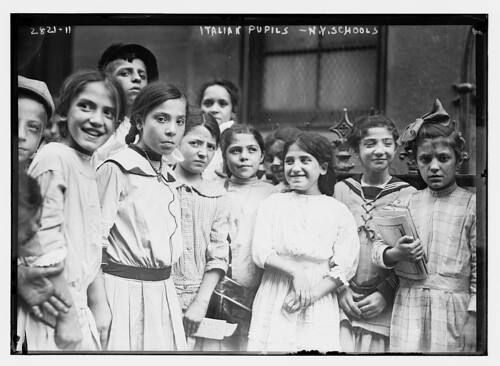Multi-cultural Monday: Aziz Anzari is schooling me
/I don't know if it was better or worse to listen to the Fresh Air interview with Aziz Anzari and Alan Yang before I watched "Master of None," but I did. I approached the show perhaps a little bit more cerebrally and a little bit more prepared for the gags than if I went in with fresh eyes and ears. "Master of None" is somewhat of a broad comedy in that the character of Aziz Anzari orbits in a world that is pretty non-specific. Young single guy in the city. I believe this is quite intentional: he's an American guy. Not an IT guy, doctor, or a convenience store owner as he points out again and again throughout the season. Just a guy trying to make it as an actor and navigating a world that still wants to type-cast Indian-American dudes into a limited set of occupations and personas.
Loverpants and I laughed and we laughed hard. We laughed the laughs of people who could identify so closely with the Asian parent representations. My husband, obviously, as the son of first generation immigrants from Asia, and I as their daughter-in-law. I may not have been raised by parents who emigrated from Asia, but I am not immune. I relate to my in-laws as elders and want to know them and be known by them just as every kid wants of their parents.
The struggle for me, though, is checking where I am laughing the laugh of those who know - OR - laughing the laugh of those who should know better.
Anzari tells Terri Gross of his chronic frustration with Indian-American actors who will effect an Indian accent just for a role. Anzari says it is one thing if the accent is genuine, but when it is put on like a mask, it is clearly for sport. It's to amuse a mainstream white American audience, an audience that should know better. We should know now that accents from Western European countries are often esteemed as charming: England, Ireland, France, Germany, Italy. But the Vietnamese nail salon worker is endlessly entertaining, and the slapstick of Long Duck Dong in Sixteen Candles is something of a template for Asians in American movies--even 30+ years later.
Why are we charmed by certain accents and amused by others? The easy way out would be explaining away the similarities in Romance and Germanic languages to American English. But I think familiarity lends itself a measure of understanding. When we find someone familiar, we may open ourselves to learning more about their joys and their struggles. Whereas if someone is unfamiliar, we may presuppose that we might not be able to understand their human experience.
It has taken me a long time to confront my own discomfort with unfamiliarity. Just because I am uncomfortable doesn't mean something needs to be unknowable. Take learning Sanskrit-based languages. I don't hear them or read them except in, say, a Thai Restaurant or in a foreign film. There are characters for some of these languages, letters for others. There are pronunciations that require my tongue to contort in formations that feel impossible. Learning Korean has been so damn hard. It's just altogether unfamiliar and my brain is filled with all kinds of other trivia. So instead of pushing past this unfamiliarity, I am often happy to reside in a place where I can regard Korean as an unfamiliar unknowable. Thus I am free to laugh and poke fun from my vantage of the unfamiliar, unknowing, but I should know better.
Wwhat I know, more and more, thanks to Loverpants and Anzari and "Fresh Off the Boat" and Margaret Cho, et. al. is that I miss out on a great bunch of awesome people when I maroon myself on the Isle of the Unfamiliar. And that's not a laughing matter.






![[African American school children entering the Mary E. Branch School at S. Main Street and Griffin Boulevard, Farmville, Prince Edward County, Virginia] (LOC)](https://farm3.staticflickr.com/2948/15356487161_c85e8a2eff.jpg)